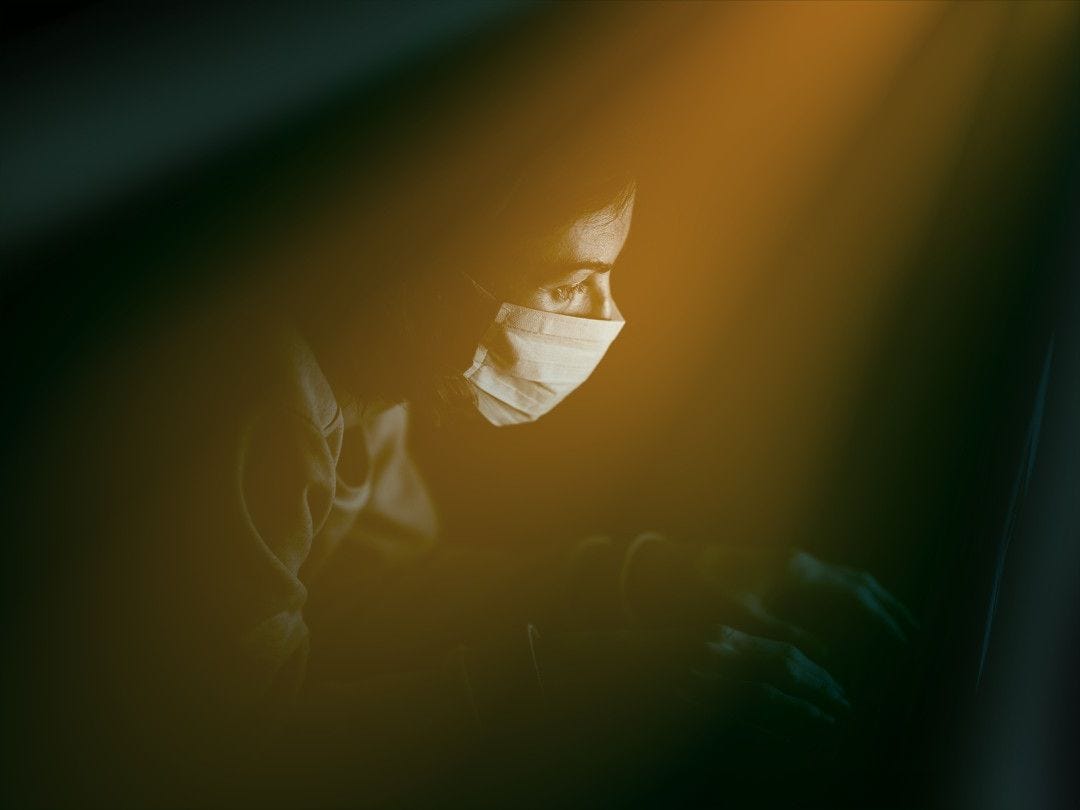It's Not Okay To Be So Passive in Shaping Our New Normal
If you believe we are going back to the way things were in February 2020, you are in denial. That holds true equally for those on the anti-vax, anti-mask extremist side of things, as well as those who believe that if only those people didn't exist, we would already be on track.
It is important to acknowledge that there is no going back, and that there will be a new normal. We need to accept that in order to be a more active part of the decisions being made that are shaping what our new normal will be.
A pattern is currently being set that each Covid season, we will live under heightened restrictions. No matter if 81% of people are vaccinated. No matter if you “did everything right”. It's important to not frame this as yet another unprecedented situation brought about by Omicron. As we find ourselves in much the same situation as we were this time last year, despite vaccines, we are establishing precedents as to how we respond to this. There will always be new variants as Covid becomes endemic. If we agree to do this now, we are agreeing to do this in perpetuity.
Are we going to let every holiday be a pale shadow of what it used to be, forever? Are we going to live in isolation every winter, following a half-hearted reprieve each summer?
649 days since the WHO declared Covid a pandemic, we have to stop pretending any of what we are doing is temporary. Lockdowns and isolation were framed as temporary measures to buy us time for vaccines while maintaining hospital capacity. Those in charge of public health seem to think acting like the fitness instructor who tells you to do eight more reps, then yells "8 more," and again "8 more" over and over again will work forever. It's hard to believe that your “circuit-breaker” " will be just a few weeks when the last one lasted over seven months, after also being pitched as only a few weeks.
Living in this constant state of uncertainty has consequences - not the least of which is that it leaves you feeling helpless to plan for the future.
Is there a government in Canada (or indeed anywhere) that has taken meaningful steps to resolve the crisis of healthcare capacity? After almost two years, why still are we being told that this is simply not possible within the timeline we have to act within, given yet another unprecedented threat? We can’t just keep reacting - we need to be able to plan. We have spent hundreds of billions of dollars on our response to Covid - yet our healthcare system is in even worse shape than it was before. Rather than putting young healthy people at very low risk from Covid out of work, what would have happened if we had instead isolated those who were at risk, while also investing in increased healthcare capacity, staffing levels, training, and support? With an aging population, this will not be our last healthcare crisis. Suspending life and livelihoods every time there is an imminent threat of overwhelmed hospitals is no more than a band-aid solution; so far into our Covid response, we should have made at least some substantial progress on addressing the gaping wound that is our healthcare system.
Almost despite ourselves, we have stumbled into one truly substantial, massive change as a result of our Covid reponse: the shift to remote work. This is the silver lining to all of this to me - that in disrupting our lives so dramatically, we have given ourselves an opportunity to rethink how we live and work. Yet even though most employees are both happier and more productive working from home, companies still keep hanging the spectre of a return to office over their heads. We need to accept that this too, is not temporary. Work from anywhere is the future, and it opens up endless possibilities. If we keep thinking of it as only a temporary measure to mitigate the spread of disease - we do such a disservice to its true potential. There is a real opportunity to build out thriving, vibrant communities that no longer need to be in close proximity to a major city. We could really benefit from the shift to remote work in Canada, given our vast land, if we developed communities to promote it - allowing some people's flexibility to work anywhere to bring opportunities to also build out local businesses and services within those communities.
We need to think beyond both Covid and the way we were before it disrupted our lives.
If instead we simply keep going along to get along, accepting that our governments tell us how many people we can invite to our homes, and for what reason we can leave them, ad infinitum, as a way to keep people from getting hurt or sick - and that one of those reasons is that we need you to resume dreary office activity to prop up the rotting corpse of our former economy - what kind of future will we have to look forward to?
None of these are questions for experts to answer alone. They are conversations that we need to have as a society. In order to have them, we have to move beyond the mindset of a seemingly endless temporary emergency. We aren’t talking about “just one more” lockdown until we can all get a booster. We aren’t talking about missing “just one more” Christmas with family. We aren’t talking about “just a few more” months before we go back to the office. We are talking about what our new normal will be. And the average person needs to speak up and become a much more active part of that conversation.


